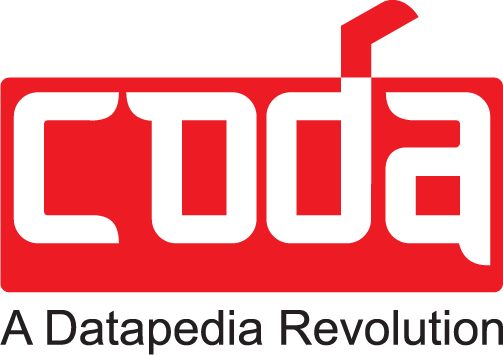Enterprise Resource Planning (ERP) systems are redefining how industries like oil & gas, manufacturing, and pharmaceuticals approach data management by providing a unified source of truth.
These systems streamline operations, enhance data quality, and support regulatory compliance, all of which are vital for sustaining efficiency and driving data-based decision-making. In this blog, we’ll explore how ERP systems support Master Data Management (MDM) and drive operational success.
Understanding ERP Software
ERP (Enterprise Resource Planning) systems integrate core business functions across departments—including procurement, operations, manufacturing, supply chain, finance, and accounting—into a single, cohesive platform.
In the context of Master Data Management, ERP functions as a central hub for storing, managing, and sharing essential business data across teams. This centralization fosters data accuracy, transparency, and, most importantly, enables data-driven decision-making.
For industries reliant on structured and timely data, an ERP system serves as the backbone for MDM efforts. By harmonizing data into one reliable source, organizations can streamline operations and enhance both data governance and reporting accuracy.
ERP’s Integral Role in Master Data Management (MDM)
Industries across sectors increasingly rely on ERP systems to manage vast quantities of data, which often remain siloed within individual departments. ERP systems consolidate and secure this data, breaking down silos to create a unified, accessible source of information.
Advanced ERP platforms, especially those with cloud capabilities, empower MDM efforts with real-time data integration, updating all departments simultaneously with the latest, most accurate data.
For instance, SAP S/4HANA is a powerful ERP solution offering flexibility and scalability tailored for enterprises. It enables a “golden record” approach to data, ensuring consistency and reliability across all datasets.
CODASOL’s MDM solutions further support this unified approach by seamlessly integrating with industry-leading ERPs like SAP, Oracle, and Maximo, driving MDM effectiveness for critical industries, from oil & gas to pharmaceuticals.
Successful Migration of SAP S/4HANA with Master Data Management
Key Benefits of ERP Systems in Master Data Management
ERP systems play a significant role in managing master data, bringing a range of benefits that amplify the effectiveness of MDM efforts. Here are some key advantages:
1. Ensuring Data Quality
Data quality is paramount for industries where inaccuracies can lead to significant operational risks. ERP systems validate incoming data to identify and eliminate anomalies before processing, enhancing the reliability of master data. For sectors like oil & gas, manufacturing, and pharmaceuticals, where operational precision is vital, ERP systems help maintain consistent data quality by flagging errors and discrepancies.
Example: A manufacturing firm using ERP can detect faulty production data early, ensuring that only accurate data flows into analysis reports, resulting in more precise inventory management, production schedules, and demand forecasts.
2. Improved Data Standardization
Data standardization is essential in MDM, ensuring that information is consistently formatted and organized across the entire organization. ERP systems support this by implementing unique catalogs and structured templates for data entries. This not only improves efficiency but also reduces redundancy and prevents error-prone data duplications.
Example: With ERP-driven standardization, a pharmaceutical company can categorize and label data uniformly, minimizing the risk of duplications and enhancing overall regulatory compliance.

Want to break down data silos and enhance operational efficiency? Discover how CODASOL’s MDM and ERP solutions can streamline your data integration process, offering tailor-made solutions for oil & gas, manufacturing, and pharmaceuticals.
3. Enhanced Asset Management
ERP systems equipped with tools like AI, ML, and digital twins provide 360-degree digital visibility of an organization’s assets. This capability enables predictive maintenance, enhanced tracking, and timely equipment repairs, which, in turn, minimizes downtime and extends asset lifespans.
Example: In the oil & gas sector, ERP solutions can monitor and predict pipeline wear, allowing timely maintenance and preventing costly, unplanned shutdowns. CODASOL’s ERP solutions support this process with advanced tools for monitoring and managing asset health across the entire lifecycle.
4. Regulatory Compliance Support
ERP systems help companies comply with stringent regulatory requirements, particularly crucial in sectors like oil & gas and pharmaceuticals where regulations around safety and emissions are strict. By centralizing and documenting all relevant data, ERP systems ensure transparency and make it easy to access information required for audits.
Example: For companies in oil & gas, an ERP can streamline compliance with agencies like OSHA and EPA by maintaining comprehensive records of emissions, safety checks, and incident reports.
5. Enhanced Productivity and Decision-Making
By automating core processes and reducing manual interventions, ERP systems minimize the risk of human error. Integration with real-time analytics tools further strengthens decision-making, allowing companies to act promptly on data insights to adapt to market conditions, optimize production, and enhance overall productivity.
Example: A manufacturing company can use ERP’s real-time data analytics to analyze production metrics, adjust output as needed, and make data-driven adjustments to reduce production waste and maximize profitability.
Write to us to explore how CODASOL’s services can support businesses in GCC and MENA countries

Why Key Industries Rely on ERP Systems for Master Data Management
Industries such as oil & gas, manufacturing, and pharmaceuticals operate within highly regulated, asset-intensive environments, where ERP systems become indispensable for maintaining compliance, managing assets, and controlling costs.
Here’s a closer look at how they benefit these sectors:
Regulatory Compliance
Industries like oil & gas must meet strict regulatory requirements, including safety protocols, emissions standards, and environmental regulations. ERP systems simplify regulatory compliance by automating data tracking, facilitating record-keeping, and supporting audits.
Asset Maintenance
In sectors where equipment reliability is critical, ERP systems are vital for asset maintenance. They enable companies to schedule preventive maintenance, monitor equipment conditions in real-time, and ensure asset longevity. This is particularly valuable in industries like manufacturing, where machinery and equipment are crucial to daily operations.
Financial Oversight
ERP systems provide real-time budget tracking, financial forecasting, and cash flow management, which are critical for capital-intensive industries like pharmaceuticals and manufacturing. These capabilities offer visibility into financial health, enabling businesses to make informed financial decisions and maintain fiscal control.
Inventory Optimization
Inventory management is crucial for sectors like pharmaceuticals, where stockouts or expired inventory can have significant impacts. ERP systems track stock levels, forecast inventory needs, and flag products approaching expiration, thereby improving inventory accuracy, reducing waste, and ensuring compliance with industry regulations.
Challenges in Implementing ERP Systems for MDM
While ERP systems offer numerous benefits, implementing them comes with challenges. Proper planning and best practices are essential for a smooth transition. Some of the main challenges include:
Cost and Complexity:
ERP systems are costly, and their implementation often involves significant time and resource investments.
Data Migration:
Migrating existing data to a new ERP system can be complex, especially if data quality or consistency is lacking in legacy systems.
Change Management:
Getting teams accustomed to a new system can be challenging and requires training and support to ensure widespread adoption.
Successful ERP implementation demands a well-defined strategy, a clear understanding of objectives, and collaboration across departments.
Wrapping thoughts
ERP systems have become a cornerstone for effective Master Data Management, especially in industries requiring high data quality, regulatory compliance, and asset management. By integrating data across all departments, ERP systems provide the foundation for a single source of truth, enhancing data reliability and operational efficiency. Organizations looking to unlock the full potential of ERP systems must prioritize careful planning, training, and continuous improvement.
With CODASOL’s expertise in MDM solutions and ERP integration, industries can navigate these challenges effectively, transforming ERP systems into strategic assets that drive data quality, efficiency, and business growth. Partner with CODASOL today to streamline your data management and set your business up for sustained success.

Ready to transform your data strategy?


